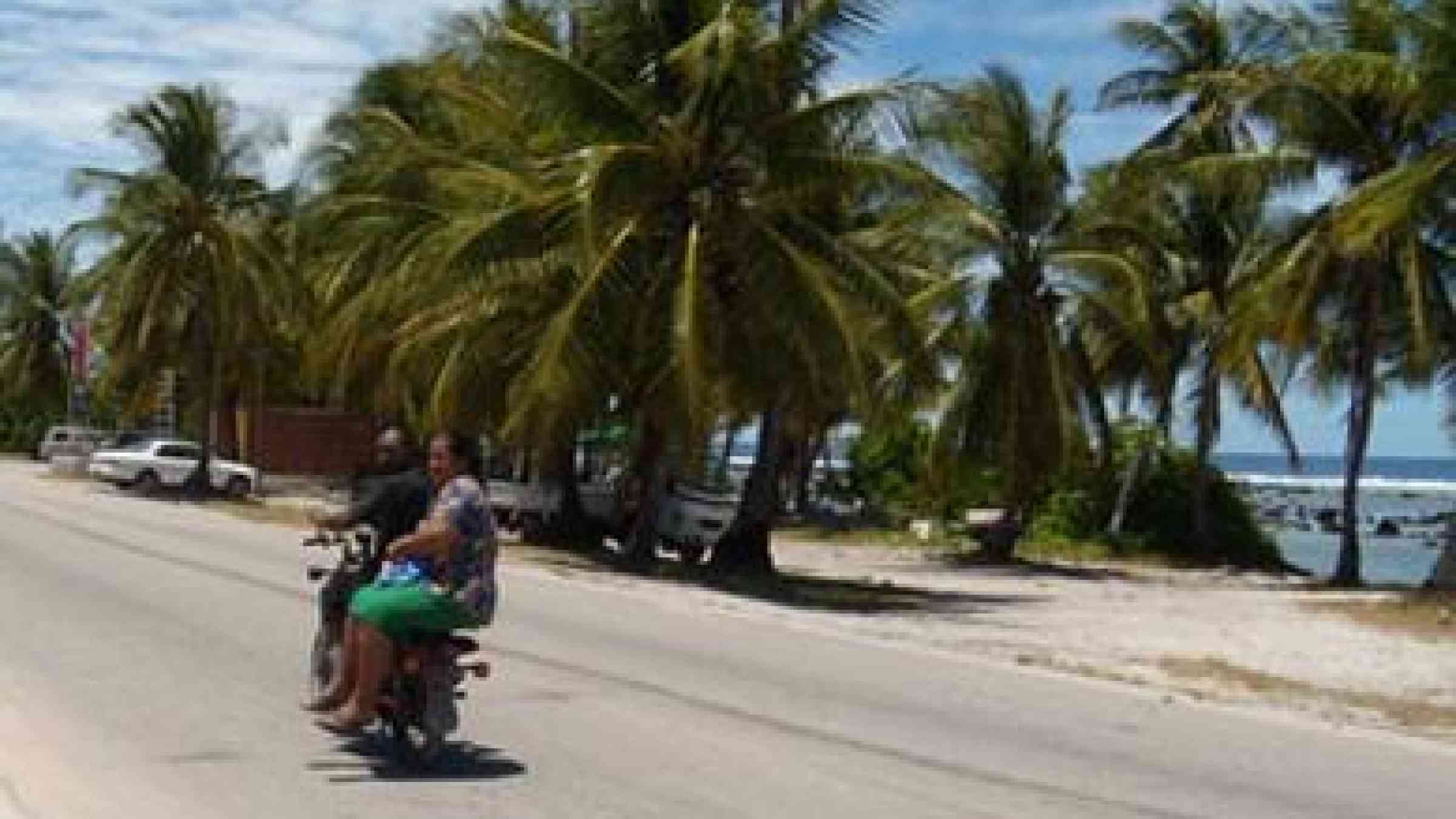Please help us improve PreventionWeb by taking this brief survey. Your input will allow us to better serve the needs of the DRR community.
Nauru: Partnership results in climate and disaster resilience plan for Nauru

Photo by SPC http://www.spc.int/images/news/20150206/Nauru.jpg
The Republic of Nauru has launched its first ever national framework aimed at increasing the Pacific nation’s resilience to climate change and disaster risk.
Nauru’s Framework for Climate Change Adaptation and Disaster Risk Reduction (RONAdapt) was developed through a collaborative effort between various regional organisations and development partners including the Secretariat of the Pacific Community (SPC) and the European Union.
Nauru is highly vulnerable to impacts linked to climate change, including coastal and inland flooding, extreme weather events, and changes in sea surface temperature and ocean acidification which have flow-on effects to economic development and food security.
While launching the framework, Nauru’s Minister for Commerce, Industry and Environment, the Hon Aaron Cook, highlighted the fact that the document was the first of its kind in Nauru, and was undertaken as a stakeholder-driven process.
“Our framework serves as a shining beacon for action, drawing on efforts and support of the international community to provide resources and skills required to strengthen our resilience,” Minister Cook said.
“Nauru requires a framework for integrating adaptation planning and disaster risk reduction throughout all the relevant ministries of our government.
‘RONAdapt provides us with a valuable framework for assessing our risks in key sectors – food and water security, infrastructure, emergency services – and making them more resilient to the negative impacts of climate change,” Minister Cook added.
The RONAdapt document was developed over five years to set out an overall framework for managing the risks to sustainable development. It involved extensive consultation and review by all government sectors, civil society and the general public in Nauru.
In congratulating Nauru, SPC Project Manager for the Global Climate Change Alliance: Pacific Small Island States project, Gillian Cambers, said the framework provides a clear approach to addressing the very real issues relating to climate change and disaster risk reduction.
“The framework identifies immediate priorities and provides a general framework for longer term planning and programming including guidance on mainstreaming climate change and disaster risk reduction in national and sectoral development policies,” she added.
The framework was launched this week to coincide with the country’s 47th Independence Day celebrations.
The Global Climate Change Alliance: Pacific Small Island States project is an SPC-European Union joint initiative, made possible with European Union funding of FJD $26.76 million (€11.4 million) It is implemented regionally by SPC and nationally by each of the nine participating governments in Cook Islands, Federated States of Micronesia, Kiribati, Marshall Islands, Nauru, Niue, Palau, Tonga and Tuvalu.
Progress to improve the climate and disaster resilience of these nine Pacific Island nations is among the on-ground benefits to Pacific communities to be highlighted during the European Union Year for Development 2015.
Explore further
Please note: Content is displayed as last posted by a PreventionWeb community member or editor. The views expressed therein are not necessarily those of UNDRR, PreventionWeb, or its sponsors. See our terms of use
Is this page useful?
Yes No Report an issue on this pageThank you. If you have 2 minutes, we would benefit from additional feedback (link opens in a new window).